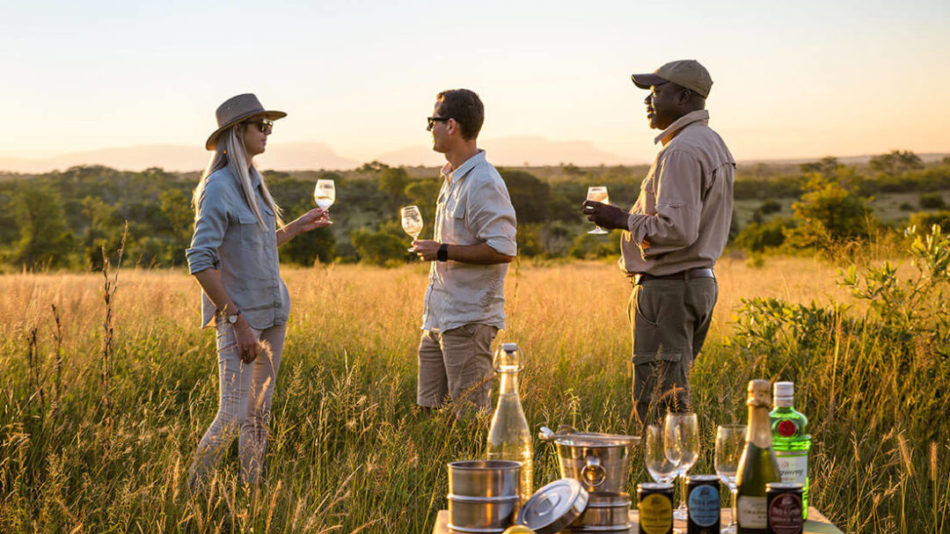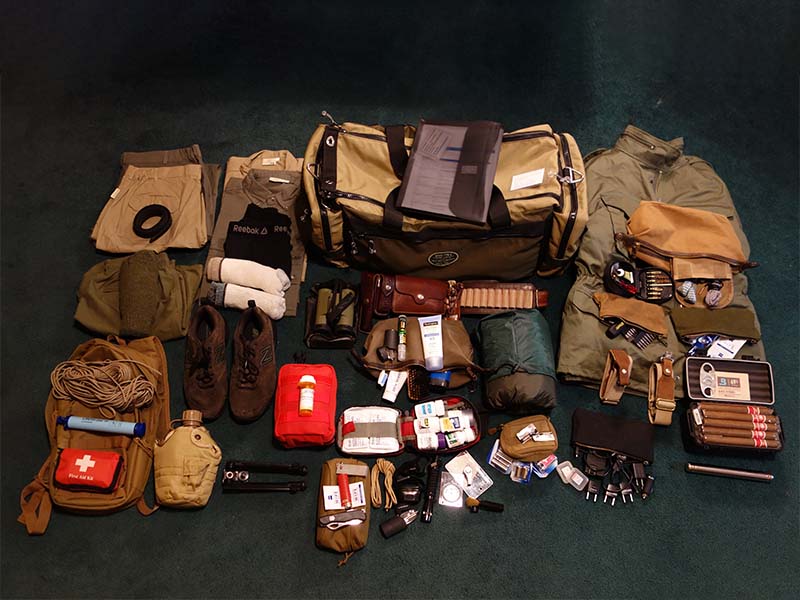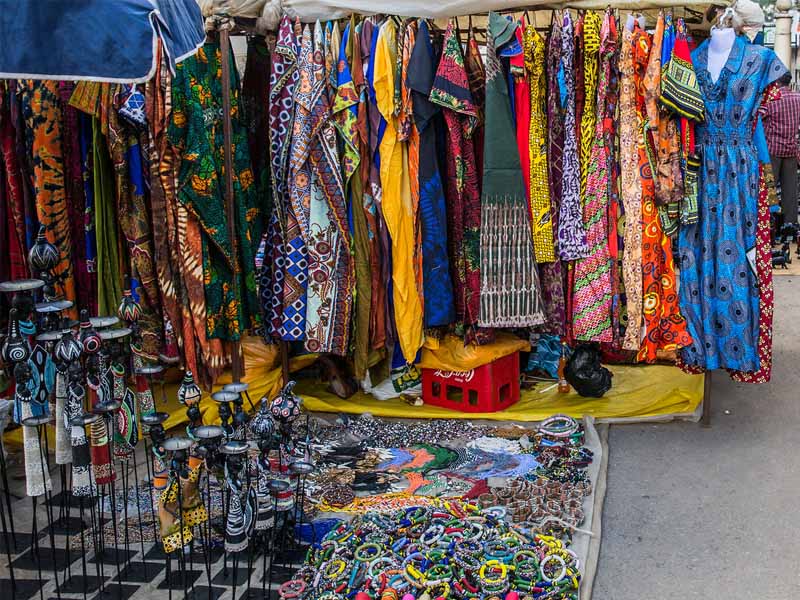Choosing the right safari destination
When choosing a safari adventure, it's essential to consider the type of wildlife you want to see and the experience you're looking for. Some popular safari destinations include Serengeti National Park in Tanzania, Maasai Mara National Reserve in Kenya, and Kruger National Park in South Africa. Each destination offers unique landscapes and a diverse range of wildlife. It's crucial to research each destination's offerings and compare them to your preferences to ensure you choose the right safari destination for an unforgettable experience.
Essential items to pack for a safari
When packing for a safari, it's crucial to bring essential items that will make your adventure comfortable and enjoyable. According to safari experts, the following items should be at the top of your packing list:
- Lightweight, breathable clothing that can be layered for varying temperatures
- Comfortable, sturdy walking shoes or boots
- Sunscreen, sunglasses, and a wide-brimmed hat for sun protection
- Insect repellent to ward off mosquitoes and other pests
- Binoculars for wildlife observation
- Camera and extra batteries to capture unforgettable moments
- Personal medications and a first aid kit for emergencies
Remember to pack light and consider the weather conditions of your destination when selecting your clothing and gear.
Safari accommodation options
Safari accommodation options can vary widely, from luxury lodges and tented camps to budget-friendly guesthouses. Here are a few options for you to consider:
- Luxury lodges: These offer high-end amenities and services, including gourmet meals, spa facilities, and personalized safari experiences.
- Tented camps: A more authentic safari experience, where you can stay in comfortable tents with ensuite bathrooms and enjoy the sounds of nature.
- Budget-friendly guesthouses: These are ideal for travelers on a tighter budget, offering basic yet comfortable accommodation options.
Each option has its own unique charm and caters to different preferences and budgets.
Wildlife viewing tips from safari experts
Safari experts recommend using binoculars for a closer look at animals without disturbing them. Binoculars with a magnification of 7x to 10x are ideal for wildlife viewing. Additionally, wearing neutral-colored clothing and avoiding bright colors can help you blend into the surroundings and observe animals without causing them stress. Lastly, maintaining a quiet and respectful demeanor during the safari contributes to a more authentic and immersive wildlife experience.
Understanding safari etiquettes and safety measures
When on a safari, it's important to follow certain etiquettes and safety measures to ensure a smooth and enjoyable experience. Here are some key points to keep in mind:
- Respect the wildlife and environment by maintaining a safe distance and following your guide's instructions.
- Always listen to your guide and stay inside the vehicle unless given permission to exit.
- Avoid making sudden movements or loud noises that could startle the animals.
- Pack appropriate clothing and gear for sun protection, insect repellent, and possible weather changes.
- Be mindful of the local customs and traditions, and show respect for the local community and their surroundings.
Observing these etiquettes and safety measures will help you have a memorable and respectful safari adventure.
Safari photography tips and gear recommendations
When capturing photos on a safari, it's important to be prepared with the right gear. Here are some photography tips and gear recommendations to make the most of your safari adventure:
- Telephoto Lens: A telephoto lens is essential for capturing wildlife from a distance. Look for a lens with a focal length of at least 300mm for optimal results.
- Sturdy Tripod: A sturdy tripod is crucial for stabilizing your camera and capturing sharp images, especially during low light conditions or when using a heavy telephoto lens.
- Camera Bag: Invest in a durable camera bag that can protect your gear from dust, bumps, and adverse weather conditions during the safari.
- Extra Batteries and Memory Cards: Ensure you have plenty of extra batteries and memory cards to avoid missing out on capturing the perfect shot.
- Camera Cleaning Kit: Dust and dirt are common on safari, so a camera cleaning kit will help you keep your gear in top condition.
- Binoculars: Apart from your camera gear, a good pair of binoculars will help you spot wildlife and plan your shots in advance.
By having the right gear and following these photography tips, you'll be well-equipped to capture stunning wildlife moments during your safari.
Local culture and interactions on safari
When on safari adventure, immerse yourself in the local culture by interacting with the indigenous people and learning about their traditions and way of life. Engaging with locals can provide valuable insights and enrich your safari experience. Be respectful and open-minded when interacting with the local community, and always seek permission before taking photos. Visitors are encouraged to support local artisans and vendors by purchasing handmade crafts or products, contributing to the local economy while also acquiring unique souvenirs.
Transportation and travel arrangements for a safari
Transportation and travel arrangements for a safari are crucial for a successful and enjoyable adventure. It's essential to consider the following factors when planning your safari travel:
- Mode of Transportation: Choose between a traditional game drive in a safari vehicle, a walking safari with experienced guides, or a combination of both for a diverse experience.
- Airport Transfer: Arrange for transfers from the airport to your accommodation and back. Some lodges and safari camps offer complimentary transfer services.
- Internal Flights or Ground Transfers: Depending on your safari destination, you may need to book internal flights or ground transfers to reach remote wildlife areas.
- Travel Insurance: Ensure you have comprehensive travel insurance that covers medical emergencies, trip cancellations, and potential safari-related risks.
- Visa and Entry Requirements: Check visa and entry requirements for the countries you'll be visiting and obtain necessary travel documents in advance.
Preparing for physical demands of a safari
When preparing for the physical demands of a safari, it's important to be ready for long days of walking and standing. You'll also need to be comfortable with being in a vehicle for extended periods of time, as that's how you'll travel through the safari. Here are some things to keep in mind:
- Wear comfortable and sturdy walking shoes to handle different types of terrain.
- Dress in light, breathable layers to stay cool during the day and warm at night.
- Consider the physical demands of activities such as hiking and wildlife tracking.
- Stay hydrated and carry snacks to keep your energy up throughout the day.
- Be prepared for bumpy rides during game drives and be mindful of any physical limitations you may have during the safari experience.
Conclusion: Making the most of your safari adventure
You've spent so much time planning and preparing for your safari adventure, and now it's time to make the most of it. Here are some key points to keep in mind to ensure you have an unforgettable experience:
- Be present: Take in every moment and soak up the beauty of the wildlife and landscapes around you.
- Show respect: Always follow the guidelines provided by your safari guide and respect the wildlife and their habitats.
- Capture memories: Whether it's through photography or journaling, find a way to preserve the memories of your safari adventure.
Reflect and share: After your safari, take some time to reflect on your experiences and share them with others. It's a great way to keep the memories alive and inspire others to go on their own safari adventures.


